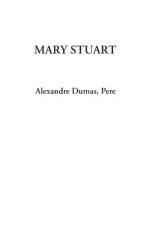“Believe particularly what will be told you by a person who will give you a ruby ring from me; for I take it on my conscience that the truth will be told you of what I have charged him to tell, and especially in what concerns my poor servants and the share of any. I commend this person to you for his simple sincerity and honesty, that he may be placed in some good place. I have chosen him as the least partial and as the one who will most simply bring you my commands. Ignore, I beg you, that he told you anything in particular; for envy might injure him. I have suffered a great deal for two years and more, and have not been able to let you know, for an important reason. God be praised for all, and give you grace to persevere in the service of His Church as long as you live, and never may this honour pass from our race, while so many men and women are ready to shed their blood to maintain the fight for the faith, all other worldly considerations set aside. And as to me, I esteem myself born on both father’s and mother’s sides, that I should offer up my blood for this cause, and I have no intention of degenerating. Jesus, crucified for us, and all the holy martyrs, make us by their intercession worthy of the voluntary offering we make of our bodies to their glory!
“From Fotheringay, this Thursday, 24th November.
“They have, thinking to degrade me, pulled down my canopy of state, and since then my keeper has come to offer to write to their queen, saying this deed was not done by his order, but by the advice of some of the Council. I have shown them instead of my arms on the said canopy the cross of Our Lord. You will hear all this; they have been more gentle since.—Your affectionate cousin and perfect friend,
“Mary, Queen of Scotland, Dowager of France”
From this day forward, when she learned the sentence delivered by the commissioners, Mary Stuart no longer preserved any hope; for as she knew Elizabeth’s pardon was required to save her, she looked upon herself thenceforward as lost, and only concerned herself with preparing to die well. Indeed, as it had happened to her sometimes, from the cold and damp in her prisons, to become crippled for some time in all her limbs, she was afraid of being so when they would come to take her, which would prevent her going resolutely to the scaffold, as she was counting on doing. So, on Saturday the 14th February, she sent for her doctor, Bourgoin, and asked him, moved by a presentiment that her death was at hand, she said, what she must do to prevent the return of the pains which crippled her. He replied that it would be good for her to medicine herself with fresh herbs. “Go, then,” said the queen, “and ask Sir Amyas Paulet from me permission to seek them in the fields.”




